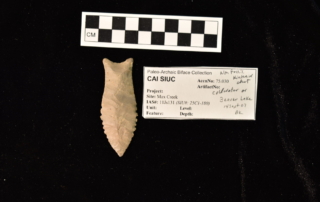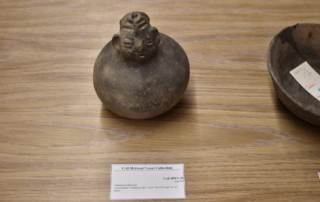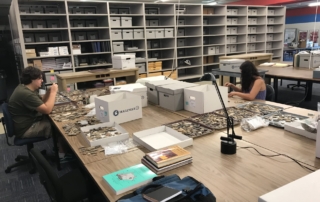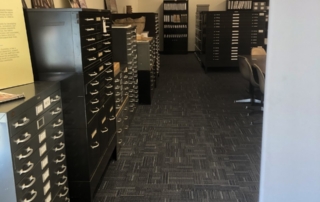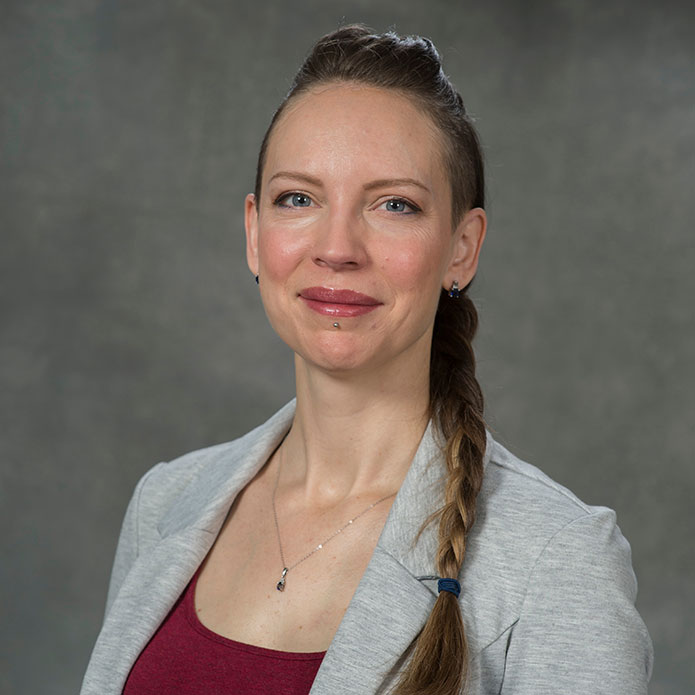Project Description
Overview
This field school offers intensive hands-on training in skills useful for a career in curation, museums, collections, archives, and field archaeology. You can expect to walk away from this course capable of identifying the various types of artifacts found in precontact North America, have a good working knowledge of the culture-history of the Midwestern US, understand the challenges of modern curation and how those relate to field work, be proficient in the basic methods employed in managing collections, gain familiarity with relational database use, and become versed in the legislation governing archaeological collections in the US, including the Native American Graves Protection and Repatriation Act. Some of these tasks involve a measure of detective work to solve the many unpredictable issues that arise when working with older collections. You will also gain an introduction to excavation methods that will serve as a primer for more comprehensive field excavation experiences and provide the necessary background for understanding how collections are generated.
The excavation portion of the field school will cover approximately two weeks and will take place on the University of Illinois campus, where an experimental reconstruction of precontact features took place over 20 years ago. Excavating this very recent site will allow us to better understand depositional processes and will train students in standard North American field methods.
Several field trips, guest lectures from experts in the field, and group discussions enhance this experience.
| Course Details | |
|---|---|
| Course Dates | June 3 – July 13, 2024 |
| Course Type | Curation, Collections Management, CRM, Prehistoric |
| Instructors | Dr. Tamira K. Brennan & Sara Pfannkuche |
| Credits* | 8 semester (12 quarter) |
| Apply By | April 1 |
| Fees Due By | Summer 1 (May 1) |
| Program Fees | |
|---|---|
| Tuition | $4,200 |
| Transcript Fee* | $300 |
| Health & Evacuation Insurance | N/A |
| Room & Board | $1,720 |
| TOTAL: | $6,220 |
Applications accepted on a rolling basis until program fills or final deadline above.
Instructors
The directors welcome emails and inquiries about the research elements of this project. More general information (tuition, health insurance, and payment schedule) can be found under the ‘Students’ tab above. Any further questions may be addressed to IFR staff. Additional details about research, course schedule, travel, accommodation, and safety can be found on the syllabus. Contacting the directors or the IFR office is encouraged and appreciated. It may help you determine if this field school is a good fit for you.
Testimonials
This is a new IFR field school. No student testimonials are available at this time.
Payment & Student Fees
Application Fee: There is a $45 fee to submit an online application.
Deposit Payment: A nonrefundable $500 deposit is due within 3 weeks of program acceptance in order to secure your place. The remainder of your program fees are due by the deadline indicated under “Course Details”.
*Transcript Fee & Academic Credit Opt Out: If you wish to participate in an IFR field school without earning academic credits, you will not be charged a transcript fee.
For more information about payment, fees, and policies, please see details under our Payment & Finances and Withdrawal and Cancellation Policy pages.
Accommodations
Students will have private bedrooms in a 2-bedroom apartment setting with a shared kitchen, living room, bathroom. Furniture and linens for the beds will be provided, as will all dishes/cook wares, and cleaning supplies. Wi-fi is available, and the housing is near community bus lines
Dinners will be a combination of meals cooked by students in teams of 2 or 3 on a rotating basis on most class nights, a weekly meal out at a local establishment, and whatever the students choose to arrange for non-class nights. All meals will minimally include a protein and fruit/vegetable. Students will pack their own lunch to bring to class each day. Refrigerators are present at student housing, but not at the class site, so plan to bring a lunch box with cooler packs, if necessary. Groceries for lunch and dinner for the entire week will be provided at the project’s expense. Students should plan on providing their own breakfast foods. The project van will make weekly trips to the grocery store so that students can acquire groceries for both.
Vegetarian and lactose-free diets can be easily accommodated, as can many food allergies. The project will do its best to accommodate other dietary needs within reason. Very specialized diets should be discussed with the PI prior to the start of the project to determine the ability to accommodate and make alternate meal plans, if necessary. Some specialized dietary products do not fall within the project budget, so it is important to discuss those needs before the start of field school with your director.
Students are required to clean their personal and shared spaces on a regular schedule. In addition to cooking teams, each night there will be a separate cleaning team to do dishes and clean up the kitchen after meals. All kitchen surfaces should be cleaned with disinfectant prior to and after preparing food. Masks and gloves will be provided for food prep, and a food-safety orientation will be provided before the first cooking session.
Laundry facilities are likely to be on-site and free of charge. If this is not the case, the project will arrange a weekly trip to the local laundromat.
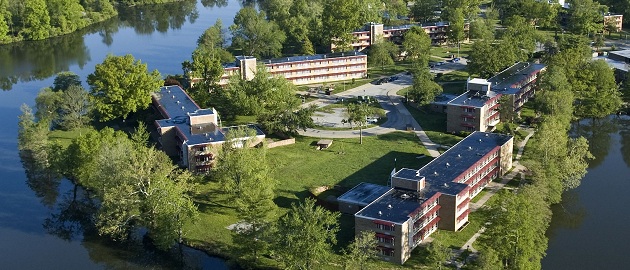

Travel Info
Natural disasters, political changes, weather conditions and various other factors may force the cancellation or alteration of a field school. IFR recommends students only purchase airline tickets that are fully refundable and consider travel insurance in case a program or travel plans must change for any reason.
General information for this program is below, but keep in mind we will discuss any updated travel information and regulations during the required program orientation, which could affect travel plans.
Students have several options for meeting in Champaign-Urbana:
- A shuttle will pick up students who fly into Indianapolis International Airport at the time designated below.
- Students may be dropped off or drive a personal vehicle to the field school site, meeting at the second location and time listed below. There will be parking for personal vehicles at student housing, though parking fees, if any, will be at the students’ expense.
- Students who arrive in Champaign via Amtrak train can take a city bus to the second location and time listed below.
Rendezvous points and times:
- Indianapolis Airport
Meeting date: June 3
Meeting point: Arrivals
Meeting time: 2 PM - Urbana, Illinois, USA, street address TBD
Meeting date: June 3
Meeting point: TBD
Meeting time: 4 PM
If you miss your connection or your flight is delayed, please call, text, or email project director immediately. A local emergency cell phone number will be provided to all enrolled students.
Student Safety
The IFR primary concern is with education. Traveling and conducting field research involve risk. Students interested in participating in IFR programs must weigh whether the potential risk is worth the value of education provided. While risk is inherent in everything we do, we do not take risk lightly. The IFR engages in intensive review of each field school location prior to approval. Once a program is accepted, the IFR reviews each program annually to make sure it complies with all our standards and policies, including student safety.
Students attending IFR international programs are covered by a comprehensive Health Insurance policy that includes physical illness or injury, mental or chronic conditions. No deductible and 100% of costs are covered up to $250,000. In addition, we provide Political and Natural Disaster Evacuation policy, which allow us to remove students from field school location if local conditions change. Our field school directors are scholars that know field school locations and cultures well and are plugged in into local communities and state institution structures.
Students attending IFR domestic programs (within the US) must have their own health insurance and provide proof upon enrollment. IFR field school directors are familiar with local authorities and if in need of evacuation, local emergency services and/or law enforcement will be notified and activated.
The IFR has strong, explicit and robust policy towards discrimination and harassment in the field. If students feel they cannot discuss personal safety issues with field school staff, the IFR operates an emergency hotline where students may contact IFR personnel directly.
Call us at 877-839-4374 or email us at info@ifrglobal.org if you have questions about the safety of any particular program.


